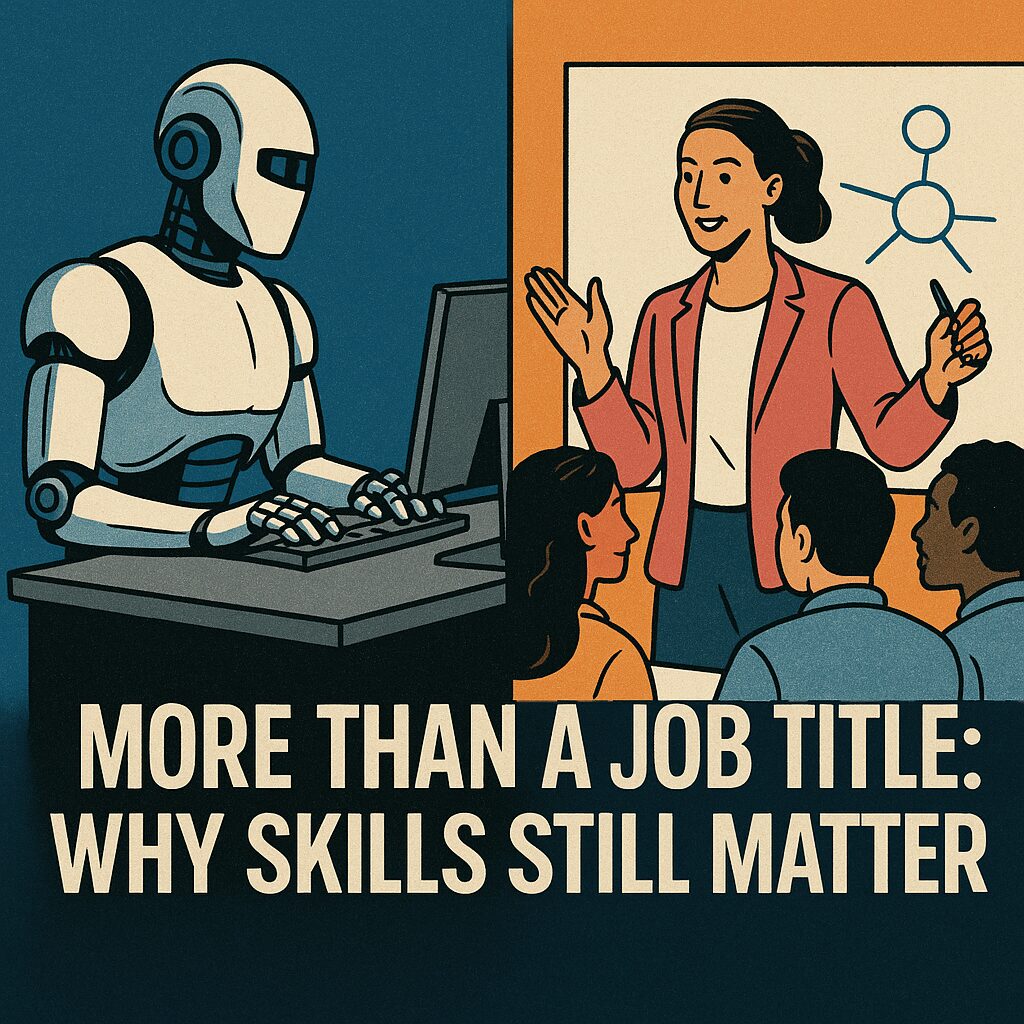Companies rushing to swap people for AI often are not responding to “AI replacing jobs.” They are highlighting a bigger issue, which is they hired a person for one task and never asked what else you could do.
This isn’t just about AI job automation, it shows how narrow job roles leave people vulnerable in the future of work.
The problem with one‑dimensional hiring and AI job loss
Too many organizations bring someone in for a single thing, either coding or admin and never go deeper. Then when AI can do that one task, suddenly the person’s expendable.
- No questions about hidden skills
- No effort to uncover strengths beyond the job title
- No interest in what else the employee brings
That’s not AI displacing people, its employers being lazy in recognizing real, human potential. When firms rely on one-skill hires, they risk job displacement in an era of rapid AI job loss.
Employees with range bring real value in a multi‑skilled workforce
You might be hired as a software engineer, but what if you also:
- Manage projects?
- Facilitate team collaboration like a scrum master?
- Knowledge in business analysis, communications, or finance?
Those are skills AI won’t replace. But if your employer never asks, they will swap you for a tool that does that one task faster and miss out on everything else you add.
Building a multi‑skilled workforce helps prevent AI job loss by combining human strengths with tech but when multi-billion dollar companies don’t see that then the future of work starts looking dystopian, real fast.
Upskilling employees & reskilling for AI
Instead of laying off people companies should invest in discovering and growing those hidden strengths.
- Map employees’ untapped talents
- Offer training in leadership, analysis or customer relations
- Redeploy staff into roles that combine human strengths with AI enhancements
Reskilling for AI isn’t just training; it’s an AI upskilling strategy that shores up roles and reduces the risk of mass layoffs. These moves are central to effective AI workforce transformation in the future of work. That costs less reputational damage and it builds a workforce ready to use AI, not compete with it.
Replaceable?
Many companies want to embrace AI and replace employees but the underline of that is, if you can replace an employee with software then you are only thinking one dimensional of what an employee can do. AI is fast and precise, but it can’t replicate curiosity, ethics, coaching ability, or teamwork.
Employers who dig deeper, upskill smartly, and champion multi-dimensional employees will come out ahead. The rest? They will just look like they were waiting for a cheap shortcut.
Companies embracing human plus AI collaboration won’t face mass layoffs or damage to their reputation, they will experience growth and expansion.
